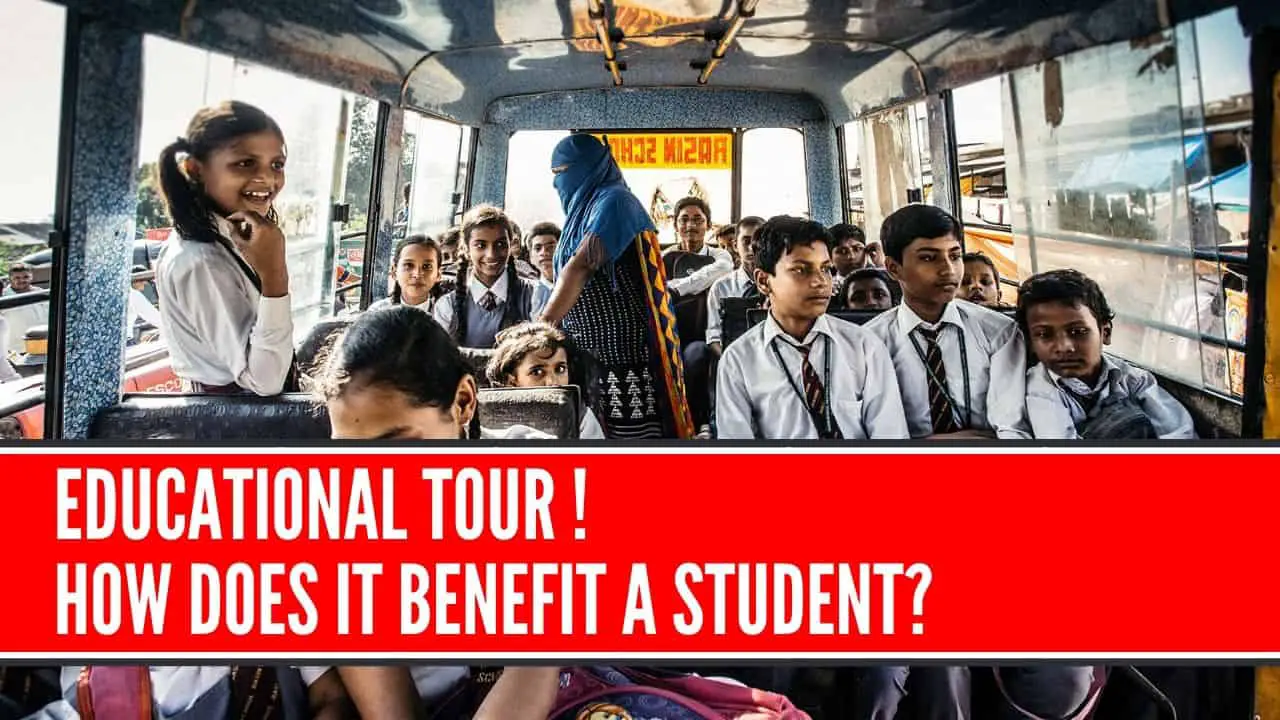Educational tours for adults are experiencing a surge in popularity, offering a unique blend of learning and adventure. These immersive experiences move beyond traditional classroom settings, providing opportunities for personal growth and knowledge acquisition through hands-on activities and cultural immersion. From exploring ancient ruins to delving into culinary traditions, these tours cater to a diverse range of interests and learning styles, promising enriching experiences for lifelong learners.
This exploration of educational tours for adults will delve into the various types of tours available, the logistical considerations for planning a successful trip, the effectiveness of the learning methodologies employed, and the broader economic and social impacts of this growing sector of the travel industry. We’ll examine case studies of successful tours and provide practical advice for both potential participants and tour operators.
Types of Educational Tours for Adults
The global travel market is experiencing a surge in demand for educational tours designed specifically for adult learners. These tours offer a unique blend of leisure and learning, catering to a wide range of interests and providing enriching experiences beyond the typical vacation. This exploration delves into the diverse categories available, highlighting their unique features and target audiences.
Educational travel offers a dynamic alternative to traditional classroom learning, fostering deeper engagement and knowledge retention through immersive experiences. The options available are vast, appealing to a broad spectrum of interests and learning styles. This variety ensures there’s an educational tour perfectly suited for nearly every individual.
Educational Tour Categories
Educational tours are broadly categorized into several distinct types, each offering a unique learning opportunity. These categories often overlap, providing opportunities for customized itineraries.
| Tour Type | Target Audience | Key Features | Example Destinations |
|---|---|---|---|
| Historical Tours | History buffs, students, academics | Guided visits to historical sites, lectures by experts, access to archives and museums. | Rome, Italy; Athens, Greece; Kyoto, Japan |
| Cultural Immersion Programs | Those interested in anthropology, sociology, and foreign cultures. | Homestays with local families, participation in traditional ceremonies, language lessons, exploration of local customs and traditions. | Peru (Inca culture); India (diverse regional cultures); Morocco (Berber culture) |
| Nature and Wildlife Expeditions | Nature enthusiasts, bird watchers, photographers, and eco-conscious travelers. | Guided hikes and treks, wildlife viewing opportunities, conservation-focused activities, opportunities for photography. | Galapagos Islands; Costa Rica; Tanzania (Serengeti National Park) |
| Culinary Tours | Foodies, aspiring chefs, and those interested in gastronomy and food culture. | Cooking classes, visits to local markets and farms, wine tasting, dining experiences at renowned restaurants. | Italy (Tuscany); France (Burgundy); Thailand (Bangkok) |
| Art and Architecture Tours | Art enthusiasts, architecture students, and those interested in design and aesthetics. | Visits to museums, galleries, and significant architectural landmarks, lectures by art historians and architects. | Florence, Italy; Paris, France; Barcelona, Spain |
Niche Educational Tour Options
Beyond the common categories, several niche educational tour options cater to highly specialized interests and provide unique learning experiences. These tours often involve active participation and offer opportunities for personal growth and professional development.
Archaeological digs allow participants to actively contribute to historical research, uncovering artifacts and gaining hands-on experience in excavation techniques. These tours often take place at established dig sites under the supervision of experienced archaeologists, offering a unique insight into the field. Examples include digs in Greece, Egypt, or Peru, depending on the season and the specific research project.
Scientific research expeditions offer participants the chance to contribute to ongoing research projects in various fields, from marine biology to astronomy. These expeditions can involve fieldwork, data collection, and analysis, providing invaluable experience for aspiring scientists and researchers. Examples might include studying coral reefs in the Great Barrier Reef or assisting with astronomical observations in Chile.
Volunteer tourism combines travel with meaningful volunteer work, allowing participants to contribute to local communities while experiencing a new culture. These programs typically involve working with local organizations on projects related to education, environmental conservation, or community development. Examples include teaching English in Nepal, assisting with wildlife conservation in Africa, or working on community development projects in Central America.
The Learning Experience on Educational Tours: Educational Tours For Adults
Educational tours offer a unique learning environment that leverages immersive experiences to enhance knowledge retention and understanding. Unlike traditional classroom settings, these tours blend theoretical knowledge with practical application, fostering a more engaging and memorable learning experience for adult participants. This dynamic approach allows for deeper comprehension and a more holistic understanding of the subject matter.Educational tours employ a diverse range of learning methodologies designed to cater to various learning styles.
This multi-faceted approach maximizes engagement and ensures a comprehensive learning experience.
Learning Methodologies Employed on Educational Tours
Educational tours effectively utilize a blend of pedagogical approaches to maximize learning outcomes. Lectures provide foundational knowledge and context, while interactive workshops encourage active participation and collaborative problem-solving. Hands-on activities allow for direct engagement with the subject matter, solidifying understanding through practical application. Finally, group discussions facilitate knowledge sharing, critical thinking, and the development of collaborative skills. For example, a historical tour might incorporate a lecture on the historical context, a workshop on analyzing primary sources, a hands-on activity involving artifact examination, and a group discussion on the societal impact of the historical events.
A culinary tour, on the other hand, could feature a lecture on regional cuisine, a hands-on cooking class, a visit to a local market for ingredient sourcing, and a group tasting and discussion of the prepared dishes.
Comparison of Learning Outcomes: Educational Tours vs. Traditional Classrooms
While traditional classrooms provide structured learning through lectures and textbook study, educational tours offer a more experiential approach. Classroom learning often focuses on theoretical knowledge, whereas tours emphasize practical application and real-world context. This difference in approach leads to varied learning outcomes. Classroom settings typically result in a strong foundation in theoretical concepts, while tours foster deeper understanding through firsthand experience and engagement.
Studies have shown that experiential learning, as provided by tours, leads to increased knowledge retention and a more profound understanding of the subject matter. For instance, a student learning about ancient Rome in a classroom might only retain the names of emperors and key events. However, a student visiting the Roman Forum and Colosseum would develop a much richer understanding of Roman life, culture, and engineering prowess.
Immersive Experiences and Enhanced Learning
Immersive experiences are key to the success of educational tours in enhancing adult learning and knowledge retention. Direct engagement with the subject matter through visits to historical sites, museums, or natural landscapes creates lasting memories and deeper understanding. The sensory richness of these environments – sights, sounds, smells, and even tactile experiences – strengthens neural connections and facilitates long-term memory consolidation.
For example, visiting a historical battlefield provides a far more powerful understanding of a historical event than simply reading about it in a textbook. Similarly, participating in a wine-tasting tour in a vineyard allows for a deeper appreciation of the winemaking process than simply reading about it. These immersive activities transform passive learning into an active, engaging, and memorable experience, contributing to significantly higher rates of knowledge retention compared to traditional classroom learning.
Marketing and Promotion of Educational Tours

Successfully marketing educational tours requires a multifaceted approach that targets specific demographics with tailored messaging and leverages both online and offline channels. A strong brand identity and compelling content are crucial for attracting potential travelers and converting them into paying customers. Understanding the unique selling propositions of each tour is paramount to crafting effective marketing campaigns.Effective marketing hinges on understanding the target audience for each type of educational tour.
Different demographics have varying interests, preferences, and media consumption habits, necessitating customized marketing strategies. A one-size-fits-all approach is unlikely to yield optimal results.
Get the entire information you require about best places to go for senior trip on this page.
Target Demographics and Marketing Strategies
Identifying the target audience is the first step in developing a successful marketing campaign. For example, a tour focused on ancient Roman history will likely appeal to a different demographic than a culinary tour of Tuscany. The Roman history tour might target older adults with an interest in history and archaeology, while the culinary tour could appeal to foodies of all ages, particularly those interested in Italian culture.Marketing strategies should reflect these differences.
For the Roman history tour, print advertisements in history magazines and partnerships with historical societies might be effective. For the culinary tour, social media marketing showcasing mouth-watering images and videos, collaborations with food bloggers and influencers, and partnerships with travel agencies specializing in food tourism would be more appropriate.
Sample Marketing Materials
Brochure for a Roman History Tour: The brochure would feature high-quality images of Roman ruins, artifacts, and landscapes. The text would highlight the historical significance of the sites visited, the expertise of the tour guide, and the inclusive nature of the tour (e.g., transportation, accommodation, entry fees). A clear itinerary and pricing would also be included. The overall design would be sophisticated and authoritative, reflecting the tour’s academic focus.
Social Media Post for a Culinary Tour of Tuscany: A visually appealing Instagram post would feature a captivating image or video of Tuscan cuisine, perhaps a close-up shot of pasta or a scenic view of a vineyard. The caption would emphasize the immersive experience, the chance to learn traditional cooking techniques, and the opportunity to sample local wines. A link to the tour’s website would be included in the post.
Targeted advertising on Facebook and Instagram could reach foodies and travel enthusiasts.
Comprehensive Marketing Plan
A comprehensive marketing plan should integrate both online and offline strategies. Online strategies could include search engine optimization (), social media marketing, email marketing, and paid advertising on platforms like Google Ads and social media. Offline strategies might include print advertising, partnerships with travel agencies, attending travel fairs, and public relations.Building brand awareness requires consistent messaging across all channels.
This means using the same logo, color scheme, and tone of voice in all marketing materials. Generating leads can be achieved through compelling calls to action in marketing materials, offering incentives such as early bird discounts, and collecting email addresses for future marketing communications. Regularly analyzing website analytics and social media engagement can help refine marketing strategies and optimize ROI.
For instance, tracking website traffic from different sources can help determine which marketing channels are most effective.
The Economic and Social Impact of Educational Tours
Educational tourism, a rapidly growing sector, generates significant economic and social benefits for both local communities and the global tourism industry. These tours, focused on learning and cultural immersion, offer a unique blend of travel and education, impacting destinations in ways that extend beyond simple visitor spending.Educational tours inject substantial funds into local economies. This influx of revenue is multifaceted, impacting various sectors simultaneously.
Economic Benefits for Local Communities and the Tourism Industry, Educational tours for adults
The economic impact of educational tours is substantial and far-reaching. Direct spending by participants covers accommodation, transportation, meals, entrance fees to cultural sites, and locally sourced goods and services. This directly supports local businesses, creating jobs and generating tax revenue for local governments. Furthermore, the increased demand for services often stimulates investment in infrastructure improvements, benefiting the community long after the tour concludes.
For example, a study of educational tours in Tuscany, Italy, revealed a significant increase in local employment and a considerable boost to small businesses offering artisan crafts and culinary experiences. The wider tourism industry also benefits from the positive publicity generated by these tours, attracting further investment and promoting the destination globally. This multiplier effect significantly amplifies the initial economic impact.
Educational Tours and Cross-Cultural Understanding
Educational tours play a vital role in fostering cross-cultural understanding and promoting responsible travel practices. By immersing participants in different cultures, these tours break down stereotypes and encourage empathy. Direct interaction with local communities, through guided tours, workshops, or homestays, provides opportunities for genuine cultural exchange. For instance, tours focusing on indigenous cultures often involve participation in traditional ceremonies or craft-making workshops, leading to deeper appreciation and respect for diverse cultural practices.
Furthermore, many educational tours emphasize sustainable tourism practices, encouraging responsible consumption, environmental protection, and respect for local customs and traditions. This mindful approach ensures that tourism benefits the host community without causing harm or exploitation.
Contribution to Sustainable Development Goals
Educational tours hold significant potential for contributing to the achievement of the United Nations Sustainable Development Goals (SDGs). By promoting responsible tourism, these tours can support economic growth (SDG 8) while protecting the environment (SDG 13). Furthermore, the focus on cultural exchange and education can contribute to quality education (SDG 4) and reduced inequalities (SDG 10). Examples include tours that support local conservation efforts, such as reforestation projects or wildlife preservation initiatives.
Others focus on empowering women in developing countries through fair trade practices or skill-building workshops. These initiatives not only generate economic opportunities but also contribute to social progress and environmental sustainability, aligning directly with the principles of responsible tourism and the broader SDGs. The success of these initiatives demonstrates the powerful potential of educational tours to foster positive and lasting change in various regions.
Case Studies of Successful Educational Tours
The success of educational tours hinges on a compelling blend of engaging content, targeted marketing, and exceptional customer service. Analyzing successful tours reveals key strategies that can be replicated to create enriching and profitable experiences for both operators and participants. Three exemplary tours showcase the diverse approaches to achieving this success.
The “Ancient Wonders of Greece” Tour
This ten-day tour, operated by “History Trails,” focused on the classical history and archaeology of Greece. The target audience was adults aged 45-65 with a strong interest in history and culture. The tour’s unique feature was its integration of expert-led lectures by renowned archaeologists and historians directly at the historical sites. Participants weren’t simply visiting; they were actively engaging with the material through interactive discussions and hands-on activities like pottery workshops.
The tour consistently received rave reviews, attributing its success to the immersive learning experience and the high caliber of its guest lecturers. High customer satisfaction was maintained through pre-trip briefings, meticulous itinerary planning, and excellent on-site support. Post-tour surveys revealed a high degree of participant satisfaction and a strong desire to recommend the tour to others.
The “Wildlife Conservation in Costa Rica” Tour
“Eco-Adventures,” a sustainable tourism company, offered a seven-day tour focused on wildlife conservation in Costa Rica. Targeting environmentally conscious adults of all ages, this tour stood out due to its strong ethical commitment. Participants contributed directly to conservation efforts by participating in activities such as rainforest reforestation and wildlife monitoring alongside local experts. The itinerary included visits to national parks, wildlife sanctuaries, and local communities, providing a holistic understanding of conservation challenges and successes.
The tour’s success stemmed from its blend of adventure, education, and meaningful contribution to a worthy cause. The company ensured high customer satisfaction by employing experienced and passionate guides, providing comfortable and sustainable accommodations, and fostering a sense of community among participants. Positive feedback consistently highlighted the tour’s impactful and immersive nature.
The “Culinary Delights of Italy” Tour
“Taste of Italy,” a specialized food and wine tour operator, created a ten-day tour showcasing the diverse culinary traditions of Italy. This tour’s target audience was food enthusiasts and aspiring chefs, predominantly adults aged 30-55. The unique selling point was its hands-on approach, involving cooking classes with renowned Italian chefs, visits to family-run farms, and wine tastings at prestigious vineyards.
The tour’s success was built on the combination of educational content and delightful sensory experiences. The tour operator prioritized customer satisfaction by providing personalized attention, accommodating dietary restrictions, and ensuring access to high-quality ingredients and accommodations. Positive reviews frequently emphasized the delicious food, engaging instructors, and the overall immersive cultural experience.
Comparative Analysis of Successful Educational Tours
| Tour Name | Theme | Destination | Key Success Factors |
|---|---|---|---|
| Ancient Wonders of Greece | Classical History & Archaeology | Greece | Expert-led lectures, interactive activities, meticulous itinerary |
| Wildlife Conservation in Costa Rica | Wildlife Conservation & Sustainability | Costa Rica | Ethical commitment, hands-on conservation activities, experienced guides |
| Culinary Delights of Italy | Food & Wine Culture | Italy | Hands-on cooking classes, visits to local farms & vineyards, personalized attention |
In conclusion, educational tours for adults represent a powerful and engaging method of learning, fostering personal growth, cultural understanding, and a deeper appreciation for the world. Whether focused on history, culture, nature, or the arts, these journeys offer a transformative experience that extends far beyond the typical classroom setting. The economic and social benefits for both travelers and host communities are significant, highlighting the potential of educational tourism for sustainable development and global interconnectedness.
The future of adult learning is undoubtedly enriched by the continued expansion and innovation within this dynamic field.


